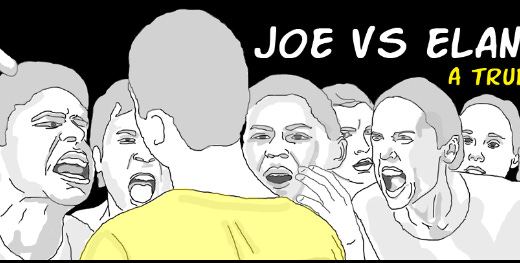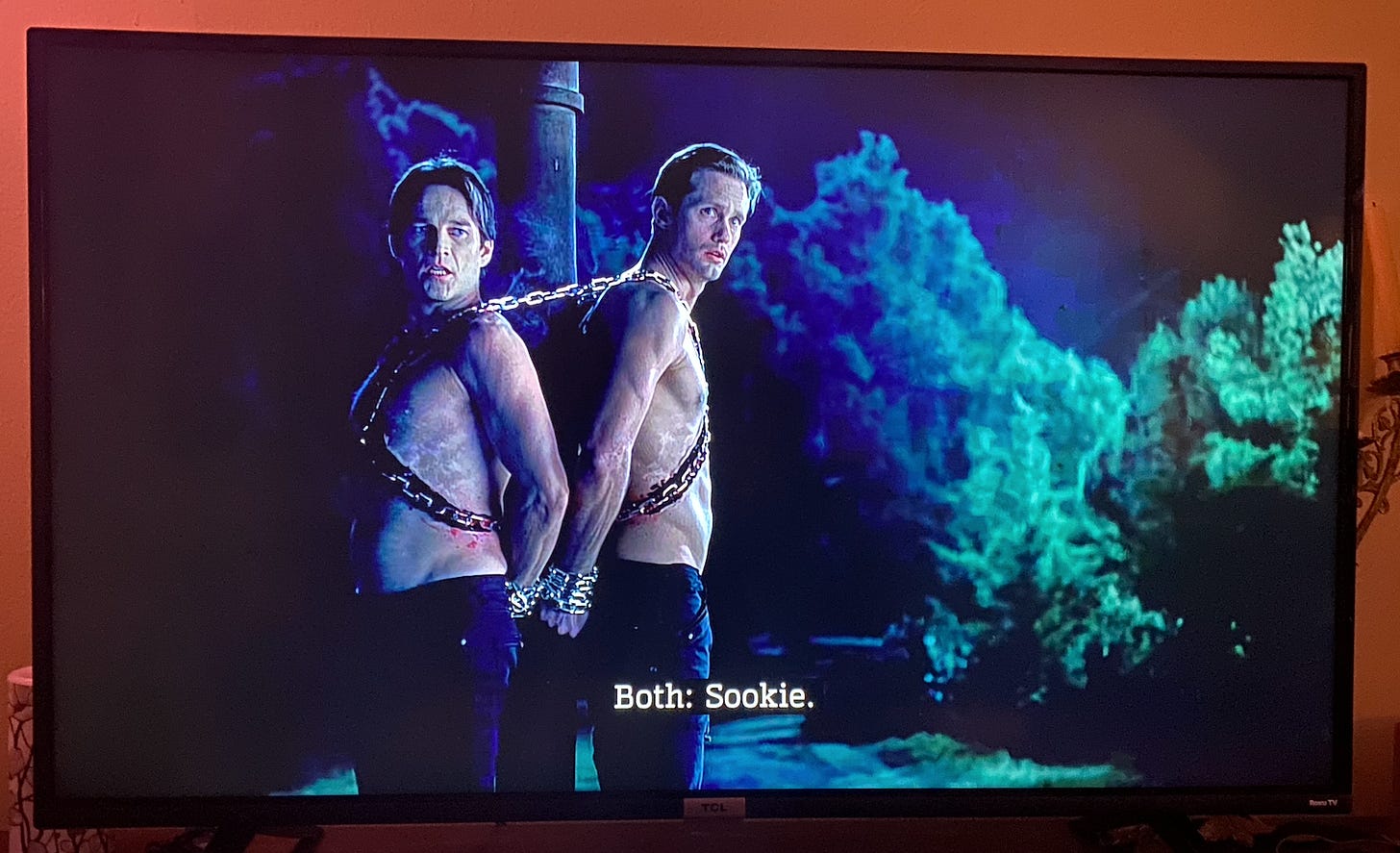There's fiction and then there's assigning narratives to real people
on conflicting narratives, "troubled teen" schools, and literature surprising itself
Before I get into it into it, I have a few project ideas simmering and am interested in your feedback:
Have you ever had an existential tantrum? And/or: What does that phrase connote for you?
In addition to manuscript-editing services, I’m considering offering advice calls for in-progress projects:
What sorts of roadblocks would you find helpful to discuss without me seeing the text in question?
Would you be interested in me incorporating some tarot reading in my troubleshooting?
Years ago, I had an idea for a project called “Prescription Poetry,” a sort of advice column in which someone could write to me with a problem and I could “prescribe” a poem or two for commiseration, if not a cure. The universe clearly wanted somebody to do this, because about a year later, the beautiful and talented Kaveh Akbar (and Sarah Kay and Claire Schwartz) began a (now-defunct) column called “Poetry Rx” at The Paris Review. I’m no end-all be-all—I’m just one guy—but I’d love to dabble in this. What does your heart long to know?
Also! I just added a new service, “draft your book with me,” for writers who want accountability, due dates, and feedback as you transform your book from an ethereal idea into actual pages. (If you’ve thought I’d love to take a multi-week writing workshop to peer-pressure myself into actually writing, but if I’m honest, I am too busy to give feedback on other people’s work and I wish all received feedback were for me alone, then you’re in luck.)
Onward, to the newsletter meat—my current curiosity:
I am constantly preoccupied with narrative.
Not just because I like to read, or because my job is to help close the distance between what a writer intends to say and what their draft currently says. (I am good at this because I’ve had a lot of practice reading between the lines of what someone says to me. If you too come from Guess Culture, you probably know what I mean. If you don’t, then guess. I’ll obviously never directly tell you.)
In my experience, most real-world interpersonal issues arise from a difference in narrative. We make up stories about other people and assign intentions to them all the time, and then we respond to them as though our narrative about them is the capital-T Truth. A zillion sitcoms and movies insist “He’s acting like that to make you jealous” or “She never loved me,” and then a character will seek revenge against this villain they’ve basically invented. Then the “villain” is like . . . Why are you attacking me, seemingly unprovoked? And the protagonist, haughty, will insist: You know what you did. Reader, people barely remember what they ate for dinner. They do not know what private stories you hold about them, and hold them responsible for.
And even if they do know, they are not likely to agree with these stories! They have their own motives and reasoning you probably don’t have access to. Everybody should get to narrate, even if just to themselves, who they are in their own story.
I was very moved recently by a web comic called Joe vs. Elan School, an anonymized account of a boy who was sent in the ’90s to a real “troubled teen” boarding school, where all students were subjected to constant degradation, sleep deprivation, emotional abuse, and physical violence for the years that they lived there. One thing that really strikes me about “Joe Nobody”’s telling is how the school was able to operate for forty years by tightly controlling the narrative of what happened there. They screened letters students wrote, refusing to send them until they were edited; any phone call a student made home had to sound pleasant, or else another student would cut off the phone service; all parent visits were chaperoned. Further, in Joe’s telling, the school fed parents narratives that their teens were emotionally disturbed and would constantly fabricate tales to avoid accountability. So even when a student did finally escape this school (by aging out), all of the student’s credibility would be destroyed; parents were predisposed to disbelieve every word their child said about the abusive environment the parents placed them in. Parents then reinforced the abusive school’s story about the student to that student.
The most moving element to me was watching Joe put his adult life together, starting at zero, or less than zero, when he finally got out. Not just his life, but his entire sense of self. His parents don’t believe him, and his life story is too unbelievable and heavy for anyone he meets to believe, either. And even though he’s physically free, he is forever changed, from being predisposed to assess everyone around him as a threat, and from having his credibility about his own story stolen from him. He wants to believe in a safe person. He wants to connect, human to human. It takes him years to figure out how to do this, how to find the right person who is receptive, and how to describe what happened to him in a way people can understand. The times when he feels it’s impossible, he seeks the guidance of what he calls “the great energy.” I love that.
This web comic dramatizes something that I’ve felt for a long time but maybe not seen articulated so clearly: How “Can I trust this person?” can look like “Is this person open to potentially being wrong about something? And do they seem capable of changing in light of new info?”
When the answers are yes and yes, that’s a trustworthy person. (At least to me!)
It’s also writing worth reading. There’s room in the world for op-eds, but I don’t come to literature for lectures. I find that when a draft feels stuck or flat, it’s because it knows what it wants to tell me from the beginning, and doesn’t encounter any complicating factor as it proceeds in a straight line to a conclusion it already knew before it began. Where’s the fun in that? Where’s the aliveness?
And where’s the connection?
Sometimes a draft can answer “Why are you saying this?” but not “Why are you saying this to me?” (“me” being the reader, a stranger).
I believe literature should connect people: the author to some deeper part of the author, the author to the reader, readers to other readers. And that curiosity is one essential way to foster connection, in literature and life. It’s what’s missing when we assign motivations to real people to make ourselves angry. What if, instead, we got curious?
We just had our first taste of Fool’s Spring here in New York; I know it will be cold on and off again through May, but there’s more pep in my step now; people are connecting again, lounging in groups at parks; we’ve moved past snowdrops and are firmly within daffodils; tulips will follow; I’ve already spotted my first 2024 guy-at-park-in-Speedo.
I’m curious about that :)
Questions/experiments/rituals:
Take a recent work and write down (or monologue about) what it means to say. Next, freewrite (or record) the answers to the following: To whom? and Why? Your answers might surprise you!
Revisit a bizarre, emotionally charged conversation that still digs at you in its incomprehensibility. Consider what you intended to say and how you believed it could have been received, given the data you had access to. Consider the data you didn’t have access to. Do you have it now? What might you have misinterpreted? Try to answer: Why did they say that? Why did they say that to you? Sometimes we think people are talking to us, and they think so, too, but they are really talking to some anger-inducing person from their past, or to themselves.
Publications/projects
I got to interview the hilarious and profound Brad Neely (of the George Washington rap, Wizard People, Dear Reader, and China, IL fame) on his debut novel, You, Me, & Ulysses S. Grant, for X-R-A-Y mag. We talked alter-egos, hottest presidents, and the hero-worship-to-cult pipeline. Click here for the whole enchilada.
I also had my review of Elysha Chang’s debut novel, A Quitter’s Paradise, go up a few months back at MER – Mom Egg Literary. Elysha’s novel shows readers a family in which all of the members have made up stories about each other and no one can say for sure what “the truth” is. This book made me wonder: What do we owe each other? Is a life lived for someone else a worthwhile price to pay for “success”? Where is the first wound? Read the full (short ’n sweet) review here.
Reading/watching/etc.
Reading: One thing about me is I am often reading like five books at a time, and right now they are:
Speaking of assigning narratives to real people, I generally pay no attention to anything the Royal Family says or does (and I think of that one married couple as “Kate Middleton and her husband”), but I’ve definitely been taken in by all the memes about why no one has seen Kate for months. (Does this count as reading?) Maybe she is just quietly recovering after surgery and is entitled to some privacy, a reasonable answer. Maybe some royal shenanigans are afoot. One thing I guarantee is that if this period of limbo is ever over, the official story will not satisfy everyone! We will never have firsthand data, and the very involved conspiracy stories are just too juicy.
Watching: Another thing about me is it usually takes me five to ten years to come around to watching a show everyone was into when it was new:
Right now, it’s Broad City. It’s funny, friendly, salacious. I’m so happy to be watching this for the first time, ten years late!! Also: True Blood. Campy, indulgent, absurd. *chef’s kiss*
(True Blood in a nutshell.)
Attending: This doesn’t usually go here but I am frequently at lit events and am usually pretty bad about ever sharing the pictures I take. Here are a few recents:




(Kaveh Akbar in conversation with Megha Majumdar for the Martyr! launch, me meeting Taylor Byas in person for the first time at AWP, Jessi Jezewska Stevens in conversation with Nicolette Polek for the Ghost Pains launch, my friend Mellissa and me channeling Anna May Wong at Katie Gee Salisbury’s launch for Not Your China Doll!)
Misc.
Save the Children, Palestine Children’s Relief Fund, and Doctors without Borders are helping to fight mass starvation and to treat medical emergencies in Gaza. If you’ve been considering donating, these are just a few of many organizations that can use your help.
That’s what I have for you this month. See you again when it’s warm!
If you’re looking for feedback on a completed book-length manuscript, stuck-in-the-middle book-length manuscript, or individual story or essay—or you’re looking for accountability and feedback while drafting your book-length manuscript—I’d love to work with you. You can fill out my contact form here, or just reply to this newsletter if you received it by email :)









The phrase "existential tantrum" makes me think of this other phrase I heard once when attending a breathwork on shame. One of the facilitators was sharing about existential shame and when she said that phrase, my whole body released a massive exhale. I think the connection I am trying to draw here is that both seem somehow intertwined. I'm wondering whether my own existential tantrums are rooted in my own existential shame - this undertone of not feeling worthy enough to be here and take up space.
Love the tarot/writing coaching idea!